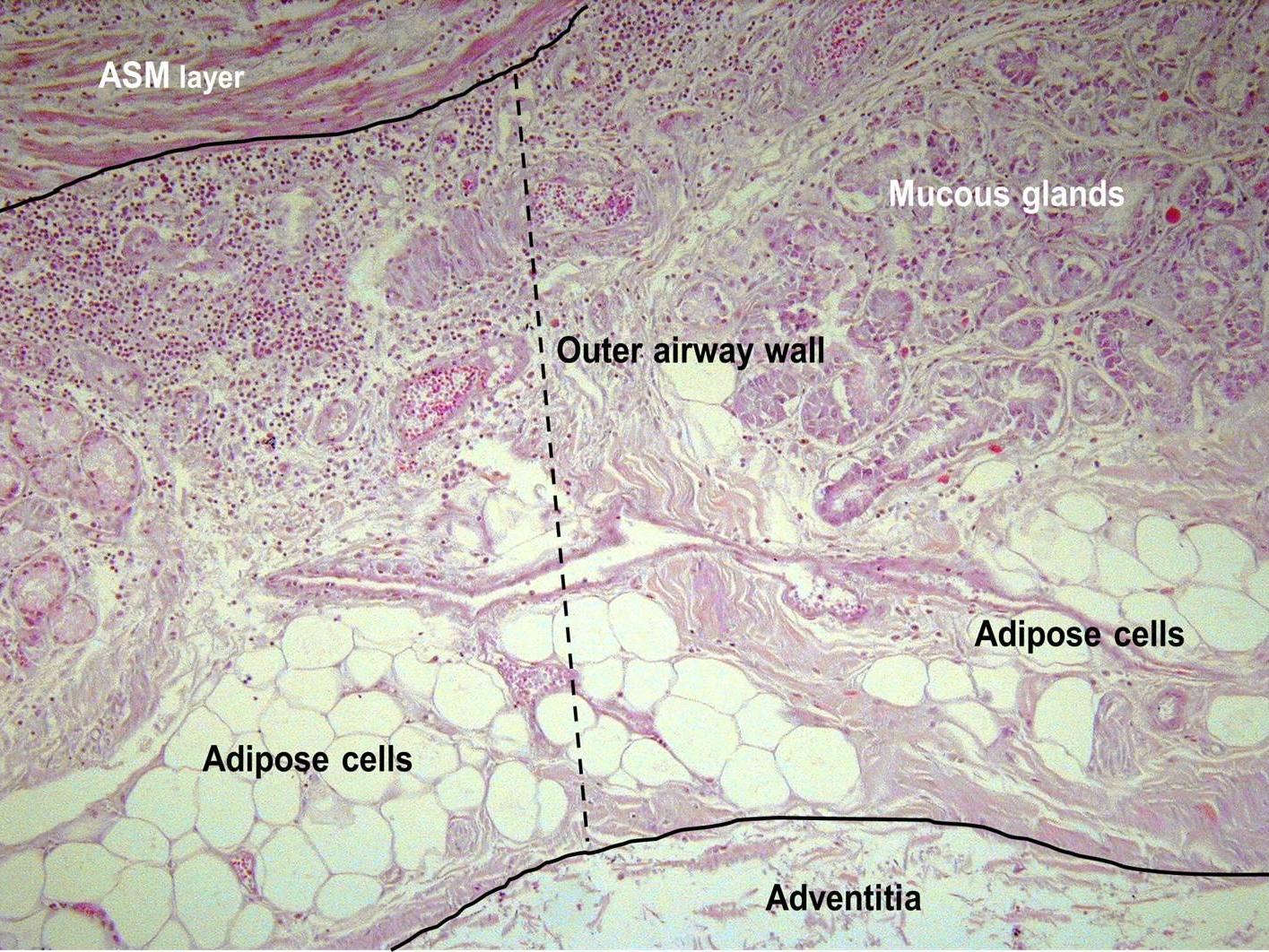Fat accumulates inside lungs of overweight people, study finds
Research may explain why people who are overweight are more likely to suffer wheezing and asthma

Your support helps us to tell the story
From reproductive rights to climate change to Big Tech, The Independent is on the ground when the story is developing. Whether it's investigating the financials of Elon Musk's pro-Trump PAC or producing our latest documentary, 'The A Word', which shines a light on the American women fighting for reproductive rights, we know how important it is to parse out the facts from the messaging.
At such a critical moment in US history, we need reporters on the ground. Your donation allows us to keep sending journalists to speak to both sides of the story.
The Independent is trusted by Americans across the entire political spectrum. And unlike many other quality news outlets, we choose not to lock Americans out of our reporting and analysis with paywalls. We believe quality journalism should be available to everyone, paid for by those who can afford it.
Your support makes all the difference.Fat can accumulate in people’s lungs and is particularly common in individuals who are overweight or obese, scientists have discovered for the first time.
Fatty tissue in the walls of airways alters their normal structure leading to inflammation which could cause wheezing and asthma, the study suggests.
Dr Peter Noble from the University of Western Australia, who co-authored the study, said: “Being overweight or obese has already been linked to having asthma or having worse asthma symptoms.
“Researchers have suggested that the link might be explained by the direct pressure of excess weight on the lungs or by a general increase in inflammation created by excess weight.”
Scientists looked at the structures of 1,373 airways inside the lungs of dead people who had donated their bodies for research. They studied the lungs from 52 individuals, including 15 who did not have asthma, 21 who had asthma but died of other causes and 16 who died of asthma.
They found accumulation of fatty tissue inside the lungs correlated with the body weight of individuals, according to the paper published in the European Respiratory Journal.
Dr Noble said: “We’ve found that excess fat accumulates in the airway walls where it takes up space and seems to increase inflammation within the lungs.
“We think this is causing a thickening of the airways that limits the flow of air in and out of the lungs, and that could at least partly explain an increase in asthma symptoms.”
Researchers are now looking for new ways to study fatty tissue in the lungs.
Professor Thierry Troosters, president of the European Respiratory Society, who was not involved in the study, said: “This is an important finding on the relationship between body weight and respiratory disease because it shows how being overweight or obese might be making symptoms worse for people with asthma.
“This goes beyond the simple observation that patients with obesity need to breathe more with activity and exercise hence adding to their ventilatory burden. The observation points at true airway changes that are associated with obesity.
“We need to investigate this finding in more detail and particularly whether this phenomenon can be reversed with weight loss.
“In the meantime, we should support asthma patients to help them achieve or maintain a healthy weight.”
Join our commenting forum
Join thought-provoking conversations, follow other Independent readers and see their replies
Comments